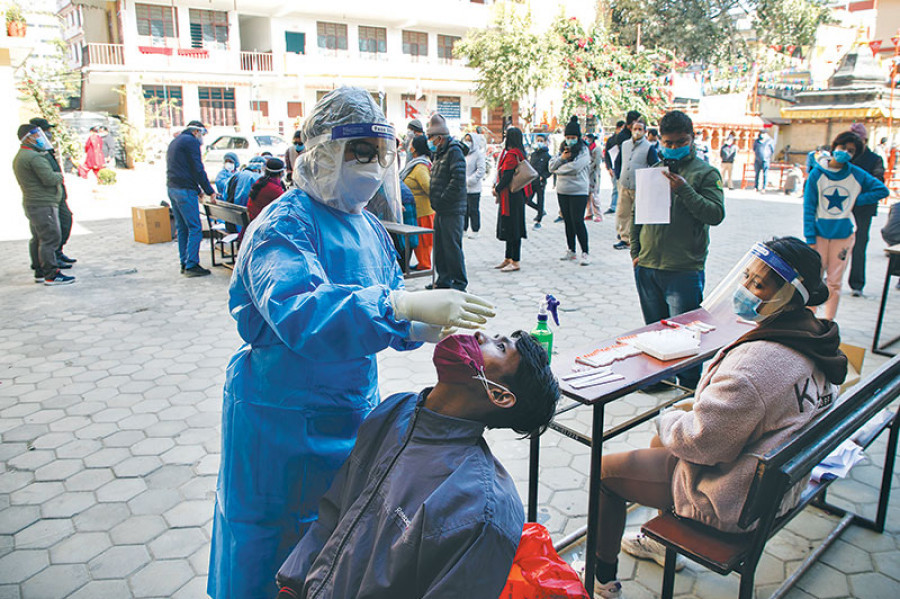Health
Government pushes antigen tests to confirm the spread of virus
Public health experts say antigen tests are unreliable and could lead to fresh outbreaks.
Arjun Poudel
The Ministry of Health and Population has decided to conduct 300,000 to 500,000 antigen tests across the country’s major cities to confirm the spread of Covid-19 as the number of new infections continues to decline following the government decision to stop free tests and contact tracing since October 17.
“To confirm the actual spread of the infection, we will conduct antigen tests in all major cities and high-risk areas across the country,” Dr Basudev Pandey, director at the Epidemiology and Disease Control Division, told the Post. “Samples will be collected in areas where there are over 200 infections.”
The Health Ministry first rolled out the antigen tests in Kathmandu Valley, which they stopped within a few days, citing misleading reports and low participation of the public. The move had also drawn criticisms from public health experts who said the antigen tests were a waste of resources as they were carried out without setting proper goals.
Regardless, officials say the antigen tests will be rolled out across the country at the earliest.
“The tests will confirm whether the infection rate has indeed declined or declined just because of fewer tests,” Dr Roshan Pokhrel, chief specialist at the Health Ministry, told the Post. “We have formed six different teams for coordination with the provincial health offices, which will be mobilised at the earliest.”
Public health experts, however, maintain that antigen tests do not show the actual spread of infection in the community. Instead, the test gives misleading reports, which could lead to another disaster.
“Antigen tests show more false positives than true positives,” Dr Kiran Pandey, consultant physician, told the Post. “The tests performed in mass settings do not help in the containment of the pandemic. It instead gives misleading reports.”
An official at the Health Ministry said that the decision to perform the tests en masse across the country at once is a ploy to show that the government is working to contain the spread of the pandemic and also to use the antigen test kits procured spending millions of rupees.
“Even if the tests were to give actual results, how would it help in containing the pandemic, since we have stopped contact tracing,” an official at the Health Ministry told the Post, asking not to be named, as he feared retribution for speaking out.
Rapid antigen tests provide faster results without the requirement of complex machines and laboratories, but their accuracy has been questioned due to the high rate of false-positives.
Doctors have also questioned the relevance of antigen tests, which have a turnaround time of around 10-15 minutes but aren’t as reliable as the reverse transcription-polymerase chain reaction test—the gold standard for Covid-19 testing—which has a turnaround time of a few hours.
“As results of the antigen tests are questionable, we should focus on the polymerase chain reaction tests,” Dr Baburam Marasini, a former director at the Epidemiology and Disease Control Division, told the Post. “I don’t understand why we [authorities] are stressing antigen tests, which do not give accurate results.”
There could be fresh outbreaks if the antigen tests miss positive cases, he warned.
The Health Ministry has also decided to conduct a second seroprevalence study with a sample size of 10,000 people starting next week. “We will take samples proportionally from across the country,” chief specialist Pokhrel told the Post. “We will also take technical help from the Central Bureau of Statistics.”
An earlier seroprevalence study conducted by the ministry showed that one in every eight people had already contracted the coronavirus by September-end. The survey report, which the government hasn’t disclosed citing insufficient sample size, showed that 17 percent of the population of Kathmandu Valley and 23 percent of the population in Province 2 had developed antibodies against Covid-19.




 13.12°C Kathmandu
13.12°C Kathmandu















